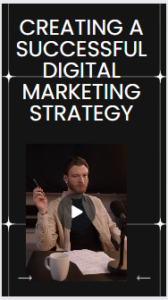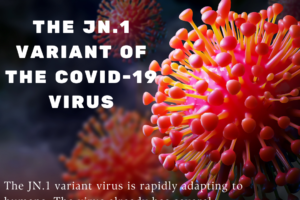Table of Contents
ToggleCreating a Successful Digital Marketing Strategy
What is Creating a Successful Digital Marketing Strategy?
The role of a Marketing Strategy is to map out how you plan to Promote and sell a Product or Service. Its Ultimate goal is to reach your target audience through Marketing and Advertising campaigns and then get them to buy or engage with your service. It can also help you map your target audience, as well as the best ways to reach them with tracking and insights.
Essentially, a Marketing Strategy is an Overarching plan that Businesses use to increase visibility and ultimately their profits. It can involve anything from Creating a strong brand identity to developing innovative products and services. Successful Marketing Strategies should be tailored to your specific goals and objectives.
Creating strategic Marketing Strategies starts with Understanding where you are now, Identifying key areas of Improvement and focusing on achieving specific goals.
Marketing Strategy vs. Marketing plan
While these terms are used interchangeably, Marketing Strategies are broader summaries of what your business does to overcome your pain points, meet your goals and reach your audience.
A strategy provides a larger picture of how you plan to stay ahead of your competition. It can reveal threats that you may need to consider for long-term sustainability. By contrast, the marketing plan methodically outlines details of how you will implement your strategies and how you will track your marketing ROI.
Additionally, your marketing plan is highly detailed and involves the four Ps of marketing: product, price, place and promotion. It helps to ensure a more integrated marketing approach—that is, a unified message across all of your promotional channels.
Why Marketing Strategies Matter
There are plenty of benefits to defining your Marketing Strategies early on. Marketing Strategies are essential for Businesses as it helps them to identify their goals and objectives, understand their target audience, and develop an effective approach to reach out to them. A well-crafted Marketing Strategy can help you gain a competitive edge, improve your brand image, and increase sales and revenue. Setting clear goals and objectives and aligning the marketing strategies to achieve them best sets you up for success. Creating a Successful Digital Marketing Strategy.
Furthermore, Marketing budgets might be limited when starting a Business, and a clear plan ensures you won’t waste any resources. Besides, how will you measure success if you don’t first establish what it looks like or how you’ll get there?
1. The main elements of a marketing strategy
2. These may vary but generally include:
3. Establishing your target audience and market
4. Deciding on your Unique Selling Proposition
5. Creating your positioning, how customers will perceive you and your product
6. Establishing your pricing
7. Setting the budget for your marketing strategy
8. Implementation of your chosen strategy
9. Continuous tracking and improvement of your plan
creating a successful digital marketing strategy.
Creating a Successful Digital Marketing Strategy, What is Marketing Strategy
Introduction:
In today’s digital age, a well-crafted digital marketing strategy is essential for businesses looking to thrive and succeed. With the increasing reliance on online channels and the ever-growing competition, businesses need to create a comprehensive digital marketing plan to reach and engage their target audience effectively. This article will delve into the key steps and considerations involved in creating a successful digital marketing strategy.
Define Your Goals and Objectives:
The first step in developing a digital marketing strategy is to clearly define your goals and objectives. These goals should be specific, measurable, attainable, relevant, and time-bound (SMART). For example, your goals could be to increase website traffic by 20% within six months or to generate 30% more leads through online channels. Defining clear goals helps you stay focused and align your digital marketing efforts accordingly.
Identify Your Target Audience:
Understanding your target audience is crucial for effective digital marketing. Conduct market research to identify your ideal customer profile, demographics, interests, and online behaviors. This information will help you create targeted marketing campaigns and tailor your messaging to resonate with your audience. Consider creating buyer personas to better understand your target audience’s needs, pain points, and motivations.
Conduct a Competitive Analysis:
Analyze your competitors’ Digital Marketing Strategies to gain insights into what is working in your industry. Identify their strengths and weaknesses, the channels they are utilizing, and the tactics they employ. This analysis will help you identify opportunities to differentiate your brand and position yourself strategically in the market. Use tools like Google Alerts, social media monitoring, and competitor analysis tools to gather information about your competitors.
Choose the Right Digital Marketing Channels:
With many digital marketing channels available, choosing the ones that align with your goals and target audience is important. Common digital marketing channels include search engine optimization (SEO), search engine marketing (SEM), social media marketing, content marketing, email marketing, influencer marketing, and display advertising. Consider the strengths and limitations of each channel and select the ones that will best help you achieve your objectives.
Develop Compelling Content:

Content is at the heart of any successful digital marketing strategy. Create high-quality and relevant content that provides value to your audience. This could include blog articles, videos, infographics, ebooks, podcasts, and more. Use a mix of informative, educational, entertaining, and promotional content to engage your audience at different stages of the buyer’s journey. Remember to optimize your content for search engines with relevant keywords, meta tags, and descriptions.
Implement Search Engine Optimization (SEO):
Optimizing your website and content for search engines is vital to increase organic visibility and drive targeted traffic. Conduct keyword research to identify relevant keywords and incorporate them naturally into your content. Pay attention to on-page elements like title tags, meta descriptions, headings, and URL structures. Build high-quality backlinks from authoritative websites to improve your website’s domain authority. Regularly monitor your website’s performance and make data-driven optimizations.
Leverage Social Media:
Social media platforms provide a powerful avenue for engaging with your target audience, building brand awareness, and driving traffic. Identify the social media platforms where your audience is most active and create a consistent presence there. Develop a content calendar, share engaging posts, respond to comments and messages, and leverage social media advertising to reach a wider audience. Build a community around your brand and encourage user-generated content to amplify your reach.
Embrace Data and Analytics:
Data-driven decision-making is crucial for a successful digital marketing strategy. Use tools like Google Analytics to track website traffic, user behavior, and conversions. Analyze the data to gain insights into what is working and what needs improvement. Monitor key performance indicators (KPIs) such as website traffic, conversion rates, click-through rates, social media engagement, and return on investment (ROI). Use these insights to optimize your campaigns and make informed strategic decisions.
Test and Iterate:
Digital marketing is an iterative process, and it’s important to continuously test and refine your strategies. Conduct A/B tests to compare different variations of your campaigns, landing pages, and call-to-actions. Monitor the results and optimize based on the data. Experiment with new ideas, explore emerging trends and stay updated with the evolving digital landscape. Adapt your strategies based on the changing needs of your audience and the market.
Measure and Report:
Regularly measure and report the performance of your digital marketing efforts. Create comprehensive reports that showcase key metrics, achievements, and areas for improvement. Use visualizations and data to effectively communicate the impact of your strategies to stakeholders. Align the reporting with your goals and KPIs to demonstrate the return on investment and the progress made towards your objectives. This will help you refine your strategies and secure support for future initiatives.
Conclusion:
Creating a successful digital marketing strategy requires careful planning, a deep understanding of your target audience, and continuous adaptation. By setting clear goals, identifying your target audience, utilizing the right channels, producing compelling content, and leveraging data-driven insights, you can build a digital marketing strategy that drives results. Embrace experimentation, monitor performance, and refine your strategies to stay ahead in the ever-evolving digital landscape. With an effective digital marketing strategy in place, you can build brand awareness, drive engagement, and achieve your business objectives in the digital realm.creating a successful digital marketing strategy
Digital Marketer in 2023
Website Planning & Analysis
The module will guide how to plan the website creation process to avoid problems such as low speed and poor navigation. The focus is on creating an intuitive and user-friendly website.
What you’ll learn:
Up-to-date website development trends
Definition and importance of domain names and extensions
Identifying the best hosting servers
Understanding various server types
Utilizing a content management system
Popular user experience trends
Defining website objectives
Essential steps in website creation
Conducting a comprehensive SEO audit
Search Engine Optimization
In this module, participants will be exposed to various forms of SEO, including on-page and off-page SEO. The module will also cover creating a link tree to improve website ranking.
What you’ll learn:
An Overview of SERP and SEO
Gaining insight into search engine operations
Traffic and its meaning
Different types of keywords
Techniques for identifying the best keyword
Strategies for keyword optimization
Content planning and optimization
Internal linking and its importance
Techniques for creating effective meta tags
Learn more about the search engine optimization course from GrowthAcad Academy.
Web Analytics
The module will provide instructions on measuring website activity and behavior, such as the number of visitors, time spent on the website, popular web pages, and other relevant metrics.
What you’ll learn:
Introduction to Google Analytics
Explanation of how Google Analytics works
Overview of real-time data tracking
Analyzing and gaining insights from website data
Understanding different types of goals in Google Analytics
Techniques for creating custom dimensions in Google Analytics
Methodologies for utilizing enhanced eCommerce in Google Analytics
Integration of Google Analytics with other tools such as Search Console, DoubleClick
Display Advertising
The module will provide training on the best practices for running Display Advertising Campaigns and the various charging methods used in these campaigns. Additionally, this module will cover the use of display advertising as retargeting campaigns, which target users who have previously visited a specific website.
What you’ll learn:
Overview of different types of display advertising
Understanding pixel sizes based on display types
Explanation of pricing models for display ads
Techniques for topic and placement targeting
Overview of GDN reserve
Methods for finding interest categories for display advertising
Explanation of contextual keyword targeting
Techniques for performing remarketing using display advertising
Video Advertising
In this module, you will receive training on how video advertising operates and how to target a specific audience niche to achieve a high click-through rate. Additionally, you will learn how to create engaging and visually appealing videos that will resonate with your audience.
What you’ll learn:
Overview of video advertising
Defining objectives for video advertising campaigns
Using YouTube Ads for video advertising
Setting up video ad campaigns on YouTube
Familiarizing with different ad formats for video advertising
Implementing auction management techniques
Optimizing video ad campaigns for better performance
Understanding YouTube analytics for video advertising
Reviewing successful video advertising case studies
E Commerce Marketing
In this module, learners will be taught comprehensive eCommerce marketing tactics applicable both within and outside their website.
What you’ll learn:
E-commerce definition
Different E-commerce platforms
Significance of SEO in E-commerce
Developing a robust E-commerce plan
Creating product listing ads
Establishing enhanced E-commerce tracking
Explanation of E-commerce conversion tracking
Determining measurement of sales revenue
Comprehending customer lifetime value
Mobile Marketing
In this module, upon completing the digital marketing certificate program offered by GrowthAcad, learners will acquire the skills and knowledge necessary to utilize mobile marketing to its maximum potential effectively.
What you’ll learn:
Familiarization with diverse types of mobile devices
Explanation of mobile marketing and social media
Definition of mobile analytics
Importance of having a mobile-responsive website
Overview of various methods of mobile advertising and search
Techniques for executing mobile content marketing
Mobile Pay-Per-Click advertising
Mobile video marketing
Comprehension of how mobile E-commerce functions
Content Marketing & Blogging
In this module, learners will be taught that content marketing and blogging involve discovering the appropriate language to engage readers and maintain their interest in the content.
What you’ll learn:
Content marketing definition
Overview of various content types
Identification of effective marketing strategies
Creation of audience personas and content maps
Development of a traffic channel plan
Techniques for overcoming content marketing challenges
Learning content promotion and increasing sales
Methods for creating original and engaging content
Understanding content dissemination techniques
Familiarization with the concepts of blogging
Affiliate Marketing
This module will educate learners on the various strategies to develop a successful affiliate marketing campaign.
What you’ll learn:
Explanation of affiliate marketing tactics
Overview of how affiliate marketing works
Identification of profitable affiliate niches and products
Techniques for developing an exceptional affiliate website
Digital strategies for increasing affiliate traffic
Management of rejections
Examination of real-life examples of obtaining approvals
Introduction to Google Adsense
Explanation of the Amazon Affiliate marketing program
Understanding of affiliate programs such as Clickbank
Marketing & Sales Automation
In this marketing training module, you will learn about digital marketing tools that utilize automation to streamline various tasks.
What you’ll learn:
Learning about demand generation and its working
Understanding lead management and marketing automation
Analyzing the impact of automation on the sales funnel
Developing a demand generation strategy
Understanding the lead management process
Increasing sales and revenue for the organization
Exploring ways to capture more leads
Improving conversion rates
Managing the sales process using automation and more
Learn more about the search engine optimization course from GrowthAcad Academy.
More..
https://mdzaka.com/
Creating a Successful Digital Marketing Strategy, What is Marketing Strategy
Why is Lead Generation Important to Business , How much is it important for businesses?
How to Create a Best Landing Page 2023-24
https://mdzaka.com/what-is-pillar-page-types-of-pillar-pages-creating-an-effective-pillar-page/











